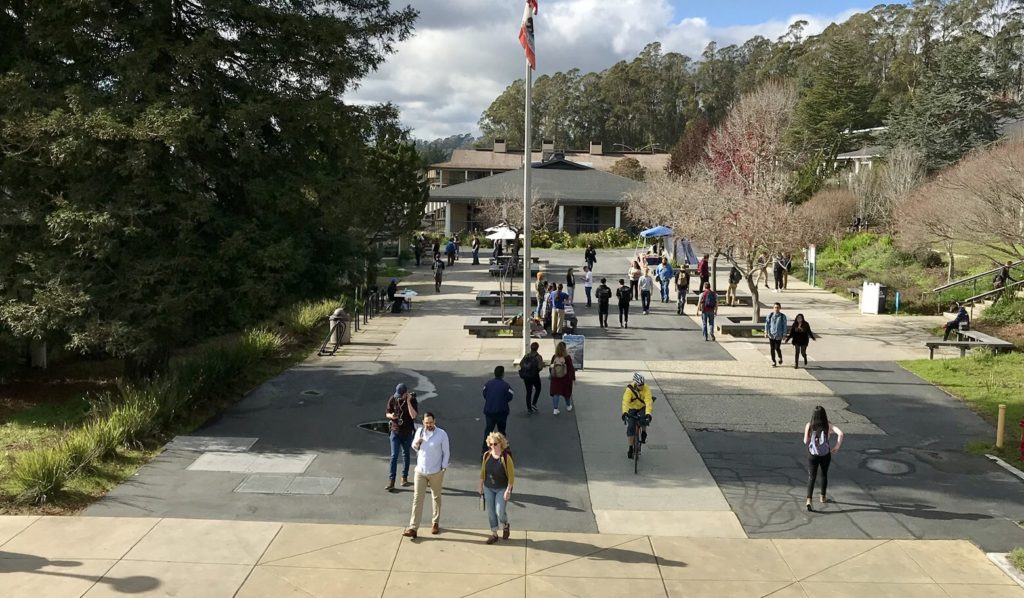College students are often depicted as uninformed, passive, and lackadaisical, especially when it comes to the news. With so many ways for us to get our information, it can be overwhelming who to trust and where to turn for information. From local radio and print newspaper to podcasts and Reddit, as we start another semester at the Cabrillo Voice, we take a look at the media habits of some Cabrillo students.
There was a clear divide between those who prefer internet over more traditional TV, radio, and print sources. Some students like Olivia Hom, a 20-year-old Psychology major, said that while she uses the internet the most, it is also her least trusted source due to a large amount of opinion and bias in online news. On the web, Hom finds Vice news to be her most trusted organization and FOX and CNN to be the least reliable due to their rush to be the first to print the news. Ming Triulzi, 16, aspires to be a trauma surgeon and while she mostly listens to the radio and local news on her kindle, she finds the Cable-Satellite Public Affairs Network (CSPAN) to be the most trustworthy and Facebook news to be the least reliable.
Other students prefer internet sources that give them more context or opinion. Accaillia Carter, 19, a theatre arts major, said she would flip through the newspaper, but her favorite source was a daily newsletter she subscribes to called, “The Skimm.” Carter said The Skimm offered her news she would not receive in other more mainstream sources. While she does go on Facebook, she avoids getting her news from social media which is often lacking in sources and overly opinionated.
There was also a divide between students who paid attention to local, national, and global headlines. Juliana Erbereyes, 20, a graphic design major, said she pays the most attention to local TV and radio like KSBW and 88.1 KZSC on the radio but will, “Stay away from politics.” To keep informed on national headlines, Erbereyes said she will skim through the Snapchat headlines but avoids Facebook sources which she says are often not vetted.
Besides Facebook, the least trusted sources were the major three national news stations: CNN, FOX, and MSNBC. Of those who distrusted these mega media conglomerates a wide variety of alternatives were given for their most trusted sources. Fritz Billingsley, a software engineer who was with his German Shepard, Lucinda Bell, said his most trusted source was Aljazeera but that he also listens to Podcasts. Another student, Alex Fernald, said he did not trust the national FOX news and instead used websites like Reddit, Google, and Youtube to get the latest headlines.
Cabrillo students get their news from a wide array of different sources. It seems there is a general view that while the internet can be a risky source to turn to for your information, the ability to check stories across multiple platforms can eliminate that risk. With older generations sticking to traditional news platforms it is interesting to see where College students turn to keep up to date. As the news shifts to online platforms, the generation that grew up with this media can give insights into what sources are reputable and trustworthy.






